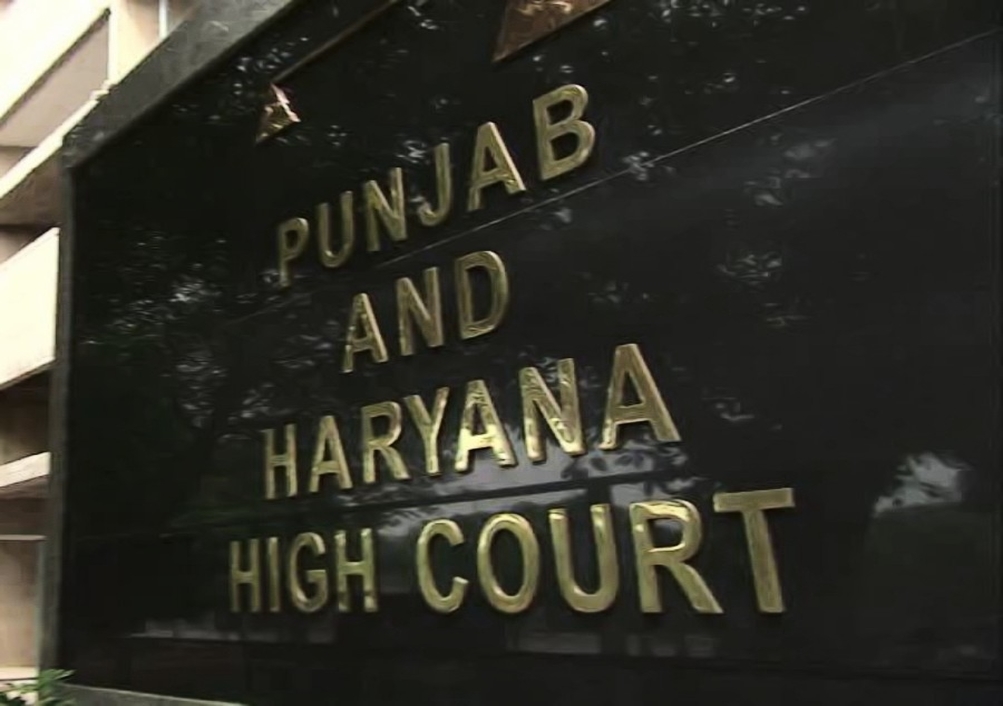In CWP No. 10212 of 2022(O&M)-PUNJ HC- If proceedings under any statute have not been concluded by statutory authority, then writ court should not interfere at such premature stage: P&H HC Justices Tejinder Singh Dhindsa & Pankaj Jain [02-06-2022]

Read Order: Banshi Lal Saini v. Union of India and Others
Monika Rahar
Chandigarh, June 3,2022: While dealing with the question of whether at the stage of notice under Section 148 of the Income Tax Act, 1961, the writ Court should venture into the merits of the controversy when AO is yet to frame assessment/reassessment in the discharge of his/her statutory under Section 147 of the Act, the Punjab and Haryana High Court has held that where the proceedings have not even been concluded by the statutory authority, the writ court should not interfere at such a premature stage.
The Bench of Justices Tejinder Singh Dhindsa And Pankaj Jain further added,
“By now it is well settled that there is a vexed distinction between jurisdictional error and error of law/fact within jurisdiction. For rectification of errors statutory remedy has been provided.”
By way of the present writ petition, the petitioner sought the issuance of a writ in the nature of certiorari for quashing the Show cause notice issued to the petitioner under Section 148A (b) of the Income Tax Act, 1961 (‘the Act’); notice under Section 148 and order passed under Section 148A (d) for the assessment year 2018-19.
The petitioner is an assessee under the Act. Return filed by the petitioner for the assessment year 2018-19 was processed under Section 143 (1) of the Act and he received notice under Section 148 of the Act. The details of the information and the enquiry on the basis of issuance of notice were supplied to the petitioner along with the said notice. The challenge to the order passed under Section 148A (d) was raised contending that the order was erroneous as it was passed without considering the stand of the petitioner.
The primary issue which arose for the Court’s consideration was whether, at this stage of notice under Section 148, the writ Court should venture into the merits of the controversy when AO was yet to frame assessment/reassessment in the discharge of statutory duty casted upon him under Section 147 of the Act?
Reference in this regard was made to the Division Bench of the High Court in Lachhman Das Nayar and others vs. Hans Raj Puri, IncomeTax Officer, Amritsar and others, wherein, while dealing with the similar situation under the old Act i.e. Indian Income Tax Act, 1922, it was held that the legislature has entrusted the determination of facts and of law to the Income-tax Officers and that particular machinery has been set up under the Act “by the use of which alone” total assessable income for the purposes of the Income-tax is to be ascertained and jurisdiction to question the assessment otherwise than by the use of this machinery is incompatible with the scheme of the Act. Thus, the Court held that the challenge of the action of the Income-Tax Officer by a writ prohibition or mandamus was not available to the assessee.
Further, reliance was placed on the Delhi High Court in Gulmuhar Silk Pvt. Ltd. vs. Income Tax Officer Ward 10(3) Delhi, wherein it was held that the petitioner would have ample opportunity during the course of proceedings before different statutory forums to show that the finding of fact arrived at was erroneous. Moreover, the Court added that at this stage, no assessment order has been passed and it has only been observed that it is a fit case for issuance of notice under Section 148 of the Act. It was also reiterated in this case that as the Income Tax Act, 1961 provides complete machinery for assessment/ reassessment of tax, the assessee is not permitted to abandon that machinery and invoke the jurisdiction of the High Court under Article 226.
Lastly, reference was made to the Top Court in Raymond Woollen Mills Limited vs. Income Tax Officer, Centre XI, Range Bombay and others.
From a perusal of the above, the High Court in the present case held that the consistent view taken by the Court was that where the proceedings have not even been concluded by the statutory authority, the writ court should not interfere at such a premature stage. Moreover, the Bench added that it is not a case where from a bare reading of notice it can be axiomatically held that the authority has clutched upon the jurisdiction not vested in it.
The Court observed that the correctness of order under Section 148A(d) was being challenged on the factual premise contending that jurisdiction though vested has been wrongly exercised.
Thus, the Court was of the opinion that by now it is well settled that there is a vexed distinction between jurisdictional error and error of law/fact within the jurisdiction. For rectification of errors, a statutory remedy has been provided.
Thus, in light of the aforesaid settled proposition of law, the Court refused to interfere by exercising its jurisdiction under Article 226/227 of the Constitution of India at an intermediate stage when the proceedings initiated were yet to be concluded by a statutory authority.
Hence, the writ petition was dismissed.
Sign up for our weekly newsletter to stay up to date on our product, events featured blog, special offer and all of the exciting things that take place here at Legitquest.




Add a Comment